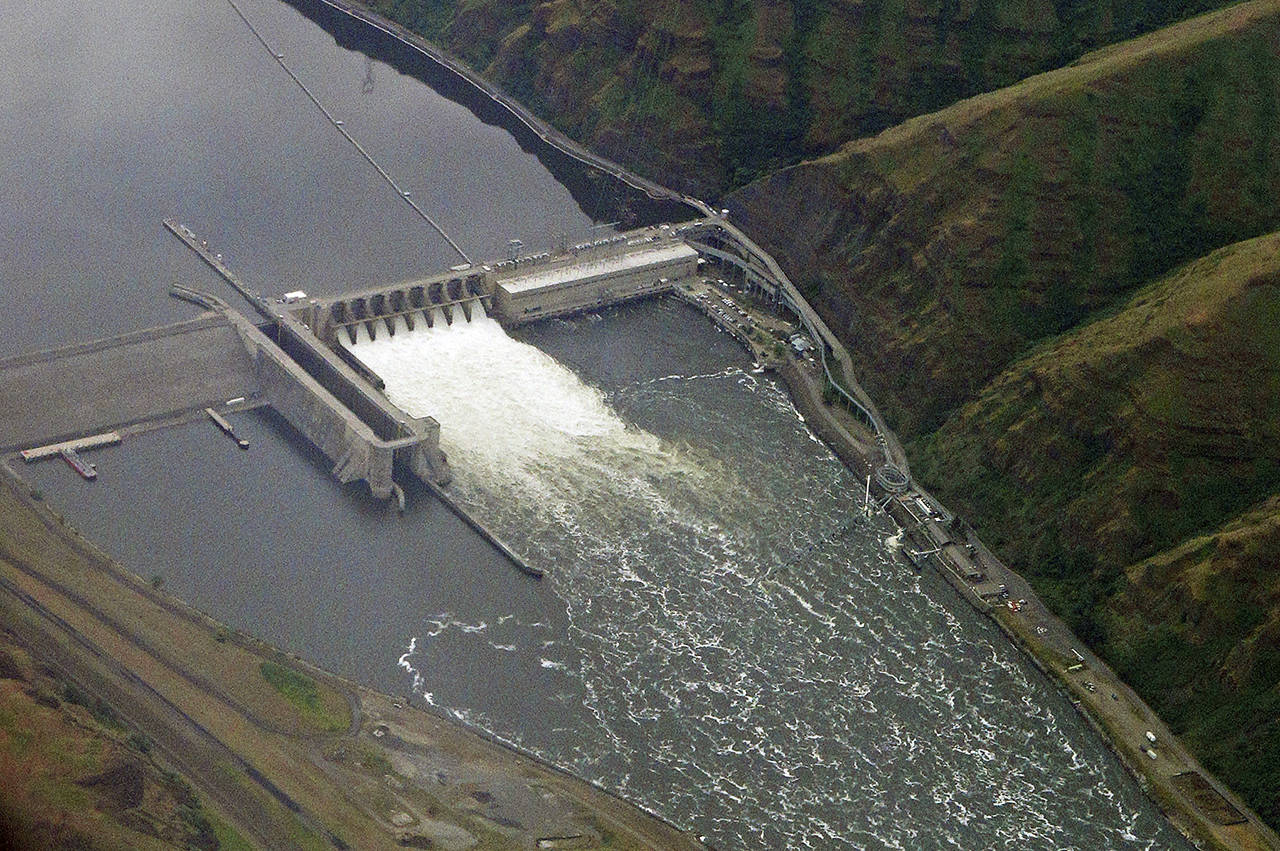By Nicholas K. Geranios / Associated Press
SPOKANE — Four federal hydroelectric dams along the Snake River in Washington state bring both benefits and liabilities to the region, and there is no clear consensus in the state on whether the giant structures should be removed or retained, a new report said.
The state Legislature last spring appropriated $750,000 to study the dams, which are blamed by many for declining salmon runs in the Columbia-Snake river system. The salmon are a key food source for killer whales, which are also endangered.
The report is intended to help Washington lawmakers decide how to respond to an upcoming federal review of the dams and whether they should be removed. That court-ordered review is expected to be released in February.
The report released Friday included data from interviews with 100 people and groups. But it did not include any recommendations and did not look at impacts outside of Washington.
“Salmon, orca, agriculture and energy are fundamental to Washington’s past and future,” the report said, noting the four dams have touched on all these issues since they were constructed more than four decades ago.
The dams create winners and losers, according to the report, which was prepared as part of investigations to see if removing the dams would provide more salmon for Southern Resident orcas to eat.
The report found there are significant differences among Washington residents on the impacts of breaching the dams.
Dam supporters feel the “coast” is telling eastern Washington communities what to do in a way that lacks respect, the report said.
“More information is needed to create opportunities for greater understanding,” the report said.
The four dams are Ice Harbor, Lower Monumental, Little Goose and Lower Granite, and they are located on the Snake River between the Tri-Cities of Washington and Lewiston, Idaho.
The four dams generate roughly enough power to supply the city of Seattle for a year, and allow navigation of barges between Lewiston and the Tri-Cities, and eventually to Pacific ports.
All species of salmon in the Snake River are listed as threatened or endangered and the dams are the biggest man-made obstacles they face, the report said.
The dams block fish migration, change river conditions and reduce the survival rate of fish, the report said. That creates losers among fishing communities and Indian tribes who depend on salmon.
Supporters of breaching the dams say it is the only method that has not been tried to increase salmon populations, the report said. About $17 billion has been spent on other efforts to increase salmon runs, the report said, “without reversing the downward population trend.”
Supporters of breaching the dams say the power they provide primarily acts as a reserve supply, and the electricity is generally not used to meet primary energy demands.
But people who support keeping the dams say losing the power would hurt the state’s goal of being carbon free by 2045, especially as the population grows and coal plants are retired.
Breaching the dams would also eliminate the use of barges to transport agricultural products down the river, the report said. Barges are cleaner and cheaper than truck or rail transportation, the report said.
The dams provide irrigation water for about 47,000 acres of farmland, and that benefit would also be lost if the dams are breached, the report said.
Supporters of breaching the dams say it would be important to make farmers whole, so they do not suffer economic losses, the report said.
People who want to keep the dams contend the loss of barging “would have disastrous ramifications for farmers,” the report said.
Removing the dams would result in the loss of some recreational activities, such as swimming beaches, the report said. But it would also provide new whitewater recreation opportunities, the report said.
Those who want to breach the dams contend the cost of maintaining the giant structures will continue to increase and they will become cost-ineffective over time, the report said.
“Although differences remain deep, for each issue there also are clear opportunities to increase understanding,” the report said.
“There is both hope and despair about what comes next and the potential for progress,” the report said.
The environmental group American Rivers said the report is a reminder of shared values.
“We want a future with clean energy, thriving agriculture and salmon runs that honor tribal treaty rights and support strong communities,” Wendy McDermott of American Rivers said in a press release.
The report is “an honest look at how we’ve managed the Snake River and the true cost of declining salmon runs,” said Tom France of the National Wildlife Federation.
Talk to us
> Give us your news tips.
> Send us a letter to the editor.
> More Herald contact information.

























